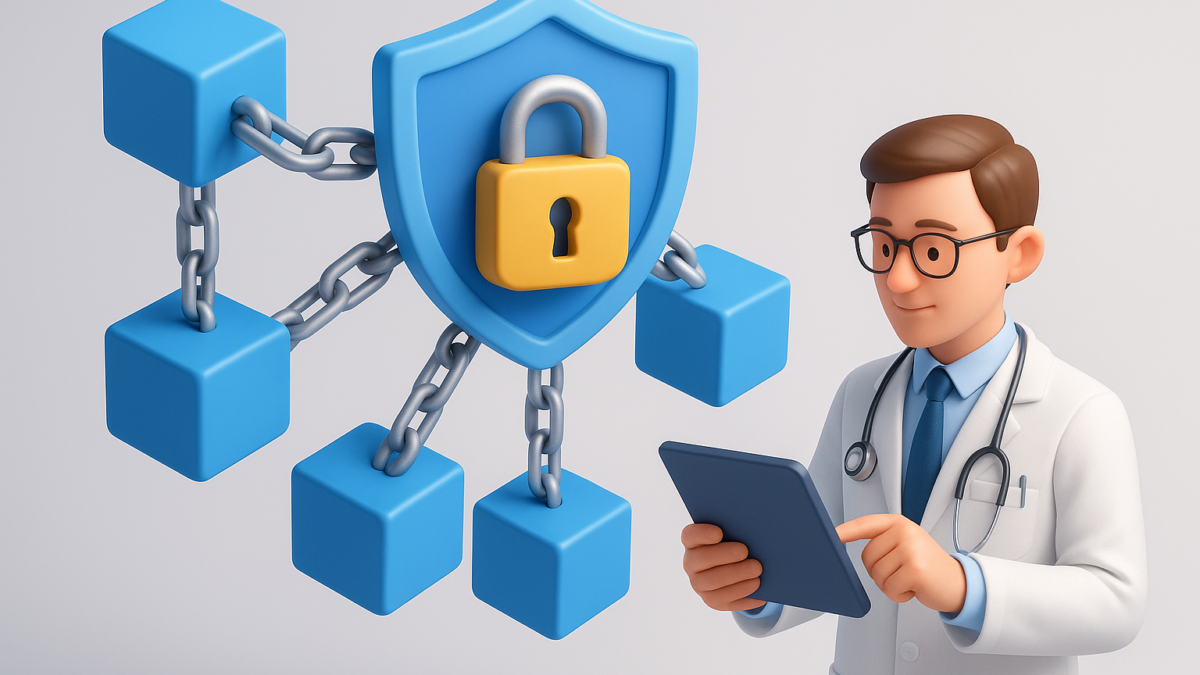Blockchain in Healthcare: Revolutionizing Data Security and Patient
The healthcare industry is undergoing a digital transformation, and one technology at the forefront is blockchain. Traditionally associated with cryptocurrencies like Bitcoin, blockchain has proven to be a game-changer in healthcare, offering solutions for secure data management, interoperability, and transparency.
With rising concerns around data breaches, medical errors, and inefficient record-keeping, blockchain provides a robust framework to enhance trust and streamline operations.
1. Enhancing Data Security and Privacy
Healthcare data is highly sensitive, making security a top priority. Blockchain’s decentralized, immutable ledger ensures that patient records are tamper-proof and secure.
Key Benefits:
- Immutable Records: Once data is entered, it cannot be altered, reducing fraud and errors.
- Access Control: Patients and authorized providers can control who accesses their data.
- Encryption: Blockchain integrates encryption protocols to further protect sensitive information.
Example: Estonia has implemented blockchain across its national healthcare system to secure patient records and improve trust in digital health services.
2. Improving Interoperability
One of the biggest challenges in healthcare is data silos—different providers using incompatible systems. Blockchain enables seamless data exchange across hospitals, labs, and insurers.
Applications:
- Unified patient health records accessible across providers.
- Faster and more accurate sharing of lab results and imaging data.
- Streamlined billing and insurance verification.
Impact: Enhanced interoperability reduces administrative costs, prevents duplicate tests, and improves patient outcomes.
3. Streamlining Supply Chain Management
Blockchain is transforming healthcare supply chains by providing real-time tracking and transparency for pharmaceuticals and medical equipment.
Key Advantages:
- Track medications from manufacturer to patient, reducing counterfeit drugs.
- Monitor temperature-sensitive vaccines using smart contracts.
- Improve inventory management and reduce wastage.
Example: IBM’s Food Trust and Pharma networks use blockchain to ensure the integrity of medical supply chains globally.
4. Enabling Transparent Clinical Trials
Blockchain can redefine clinical trials by ensuring that data is secure, verifiable, and transparent.
Benefits:
- Immutable records prevent tampering with trial data.
- Facilitates patient consent management using smart contracts.
- Enhances transparency for regulatory compliance and research credibility.
Impact: Pharmaceutical companies and research institutions can build greater trust with regulators and patients.
5. Empowering Patients and Personalized Care
Blockchain gives patients ownership of their health data, enabling personalized treatment plans.
Applications:
- Patients can securely share their health data with multiple specialists.
- AI-driven analytics can access verified data to suggest customized therapies.
- Patients receive real-time updates on medications, treatment plans, and lab results.
Result: Improved patient engagement, better adherence to treatments, and safer care delivery.
6. Challenges and Considerations
While blockchain offers transformative potential, its adoption in healthcare faces challenges:
- Scalability: Handling massive healthcare data efficiently is complex.
- Integration: Merging blockchain with legacy healthcare systems requires investment.
- Regulatory Compliance: Ensuring adherence to HIPAA, GDPR, and other regulations is critical.
Despite these hurdles, the benefits outweigh the challenges, and several pilot programs worldwide have demonstrated successful implementation.
How Blockchain Secures Patient Data and Ensures Care Transparency
Blockchain is no longer just a buzzword in healthcare—it is a practical solution for data security, interoperability, and patient empowerment. By adopting blockchain, healthcare organizations can enhance trust, reduce fraud, streamline operations, and improve patient outcomes.
As the healthcare ecosystem continues to digitize, blockchain will play a pivotal role in shaping the future of secure and efficient care delivery.
Call-to-Action (CTA)
Want to share your healthcare insights with industry decision-makers?
Leverage iTMunch’s B2B Content Syndication Services to distribute your high-value content to the right audience, generate qualified leads, and amplify engagement.
You May Also Like: Syndication Intelligence: How Predictive Analytics Is Rewriting B2B Lead Generation





